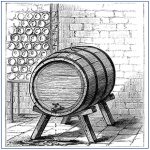Negotiating A Brand License
Trademarks, brand recognition and goodwill associated with its brands are often the most valuable assets a company has. Licensing allows trademark owners to capitalize on their brand and increase market penetration, by taking advantage of the licensee’s infrastructure and resources.
From the CLE class: Fashion Law Basics: The Lawyer Wears Prada
Patrick McKey
has a practice that concentrates primarily on complex commercial litigation and international business disputes, as well as corporate counseling. For over 10 years, he has represented a range of clients in the fashion industry, including Bruno Magli, Coach, Dana Davis, Giuseppe Zanotti, Harajuku Lovers, Italian Ready to Wear (“IRTW”), Kid Robot, L.A.M.B., Oilily and Vicini. He has represented many of these clients in all aspects of their operations, from intellectual property and licensing issues to commercial litigation, contract negotiations, and import/export issues.Maria Vathis has a broad range of experience defending corporate clients in complex business litigation matters, insurance coverage, and class actions involving alleged violations of federal statutes, including the Telephone Consumer Protection Act. Ms. Vathis has represented financial institutions, investment firms, law firms, brokers, attorneys and other professionals. She handles matters nationwide in federal and state courts.
In this CLE class clip, Patrick and Maria discuss Negotiating A Brand License.
Watch the Full Fashion Law Basics: The Lawyer Wears Prada CLE Class
Celebrities often license their names to fashion lines and other products. Lauren Conrad, a television personality, for instance licensed “LC Lauren Conrad” to Kohls for clothing, shoes, and accessories. Another pop culture phenom taking advantage of cross branding is the singer Lady Gaga, who licensed her name to Coty Inc. for perfumes.
Being the most valuable asset a company has, the trademark, or brand, doesn’t come without a price. The owner of a mark has a duty to “police” use of its mark, lest they lose control of that mark. A trademark may be declared “abandoned” if an owner does not control the nature and quality of its good , or services. Failure to protect your mark, and you run the risk of your mark ceasing to become a source indicator, or of a distinctive mark becoming generic.
Escalator, was originally a brand of “moving staircases”, but through improper policing, became a generic term. In the same manner, Cellophane was originally a brand of transparent cellulose, yet again, through improper policing, became a generic term.
A licensor has the same duty to maintain adequate quality control over the licensee’s activities. If a licensor does not monitor and enforce the quality of the goods being offered by the licensee, the incensed mark may lose its significance as a mark and be deemed “abandoned.”
For more information on negotiating a brand license, check out the complete CLE class video, presented by Maria Vathis and Patrick McKey.








